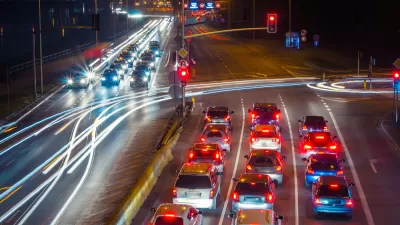Demographic and economic trends, and improving transport options, including more carsharing services, are contributing to a long-term decline in automobile ownership and use.

Car sharing might seem like a realtively novel concept, but it's already having a dramatic effect, along with other social and demographic factors, on the auto sales industry, according to an article by Neal E. Boudette..
"Car-sharing services such as Zipcar Inc. and Cars2Go are eating into demand for new and used cars, adding to social changes such as smaller households and mass-transit improvements, that pose long-term challenges for new-car sales, according to two recent studies."
"AlixPartners LLP, a consulting firm with a large automotive practice, says Americans would have purchased about 500,000 new or used cars between 2006 and the end of 2013, if they didn't have car sharing services as an alternative."
"'It is a huge difference,' said Mark Wakefield, a managing director at AlixPartners. The firm's study is based on surveys of car-sharing customers in 10 major cities where car sharing has taken root, including Boston, Washington, D.C., New York, San Francisco, Seattle, San Diego, Miami, Chicago, Austin, Texas, and Portland, Ore."
"Over time, as car sharing expands beyond these major markets, the firm expects the impact on auto sales to increase. 'This is only just coming up on the radar screen,' Mr. Wakefield said. U.S. new car sales last year rose 7% over 2012 to 15.6 million vehicles and are projected to increase this year."
Boudette also shares news of a second study portending similar impacts on car sales: "Michael Sivak, a researcher at the University of Michigan Transportation Research Institute, concluded in a paper published in July that the number of vehicles on the road per household and per licensed driver, and the number of miles driver per household and per licensed driver, have been falling for nearly a decade...From that, he concludes that societal shifts such improved public transportation networks and increased telecommuting are driving the decline in vehicle ownership rates, not just the slumping economy."
FULL STORY: Car-Sharing, Social Trends Portend Challenge for Auto Sales

Planetizen Federal Action Tracker
A weekly monitor of how Trump’s orders and actions are impacting planners and planning in America.

Maui's Vacation Rental Debate Turns Ugly
Verbal attacks, misinformation campaigns and fistfights plague a high-stakes debate to convert thousands of vacation rentals into long-term housing.

San Francisco Suspends Traffic Calming Amidst Record Deaths
Citing “a challenging fiscal landscape,” the city will cease the program on the heels of 42 traffic deaths, including 24 pedestrians.

Trump Prompts Restructuring of Transportation Research Board in “Unprecedented Overreach”
The TRB has eliminated more than half of its committees including those focused on climate, equity, and cities.

Amtrak Rolls Out New Orleans to Alabama “Mardi Gras” Train
The new service will operate morning and evening departures between Mobile and New Orleans.

The Subversive Car-Free Guide to Trump's Great American Road Trip
Car-free ways to access Chicagoland’s best tourist attractions.
Urban Design for Planners 1: Software Tools
This six-course series explores essential urban design concepts using open source software and equips planners with the tools they need to participate fully in the urban design process.
Planning for Universal Design
Learn the tools for implementing Universal Design in planning regulations.
Heyer Gruel & Associates PA
JM Goldson LLC
Custer County Colorado
City of Camden Redevelopment Agency
City of Astoria
Transportation Research & Education Center (TREC) at Portland State University
Jefferson Parish Government
Camden Redevelopment Agency
City of Claremont




























